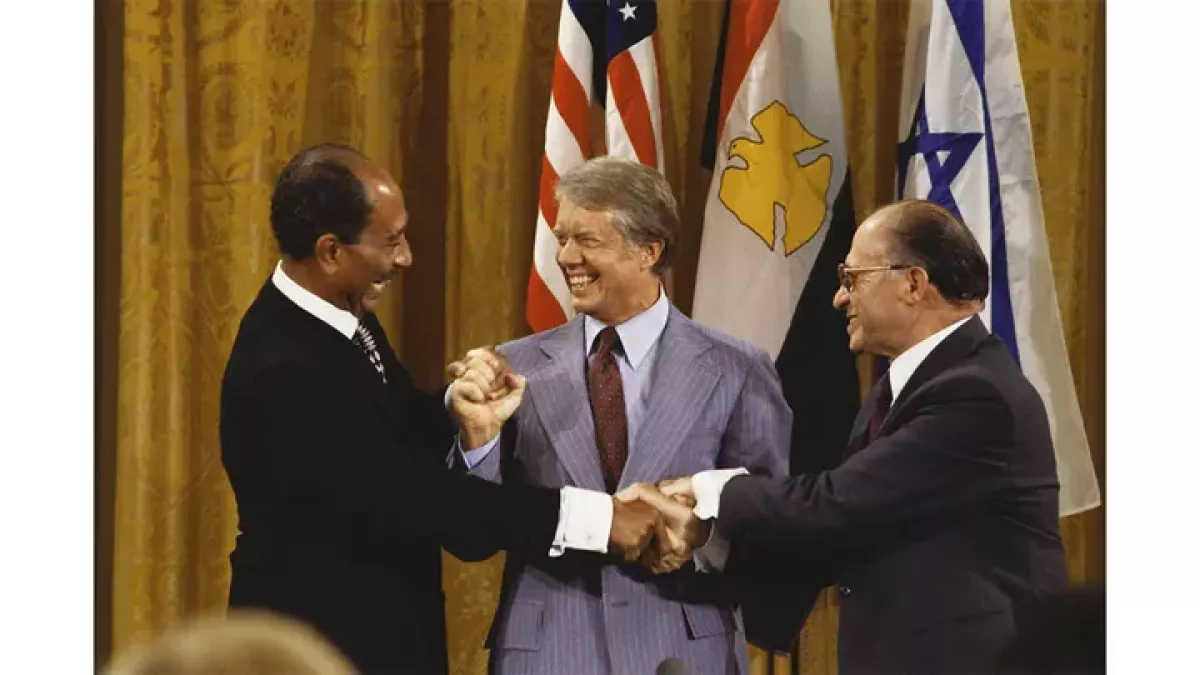Carter's legacy: From Camp David to global diplomacy
An article from Foreign Affairs examines the foreign policy legacy of U.S. President Jimmy Carter, offering a nuanced analysis of his term and post-presidency. While Carter's presidency is often criticized for failures, particularly the Iranian hostage crisis and the decline of U.S. influence, the article highlights his significant contributions to diplomacy and international peace.
Carter's handling of the Camp David Accords in 1978, where he brokered a peace agreement between Egyptian President Anwar al-Sadat and Israeli Prime Minister Menachem Begin, stands out as a key achievement. The article underscores Carter's determination to mediate between two deeply entrenched adversaries, despite the challenges of working with the intransigent Begin. His personal gesture of signing photographs for Begin’s grandchildren is cited as the pivotal moment that secured the breakthrough, leading to the Egyptian-Israeli peace treaty six months later.

The article acknowledges that Carter's presidency faced criticism, particularly due to the Iran hostage crisis and the perception of weakness in dealing with the Soviet Union and global challenges. However, it contends that Carter's foreign policy left an enduring positive legacy that is often overshadowed by his electoral defeat. His approach to foreign relations, characterized by a combination of diplomacy and hard power, reflected a vision that prioritized human rights and peace. For example, his stance on human rights shaped U.S. relations with Latin America and the Soviet Union, where he took steps to support dissidents and challenge oppressive regimes, contributing indirectly to the end of the Cold War.
Additionally, the article examines Carter's Cold War strategy, where he balanced both soft and hard power. While he sought arms control agreements like SALT II, his administration was also marked by increased defence spending, particularly in response to Soviet aggression. Carter's policies, such as the Carter Doctrine in response to the Soviet invasion of Afghanistan, were grounded in a strong stance on maintaining U.S. interests, especially in the Middle East. His relationship with China, which culminated in the normalization of diplomatic ties in 1979, is also highlighted as an important strategic move, setting the stage for later U.S.-China relations.
Post-presidency, Carter's commitment to peace continued through the Carter Center, where he worked on election monitoring, conflict resolution, and health initiatives like the fight against Guinea worm disease. The article notes that Carter's post-presidential efforts to mediate in the Middle East and his focus on human rights have influenced subsequent administrations, including those of George W. Bush and Bill Clinton.
In conclusion, the article paints a portrait of a president whose foreign policy, though fraught with challenges and criticism, ultimately helped shape the global landscape in lasting ways. His diplomatic achievements, particularly in the Middle East, remain a benchmark for future U.S. presidents. Despite setbacks, Carter's ability to combine idealism with pragmatism and focus on long-term peace has earned him a place as one of the most consequential U.S. presidents in foreign policy history.
By Vugar Khalilov








